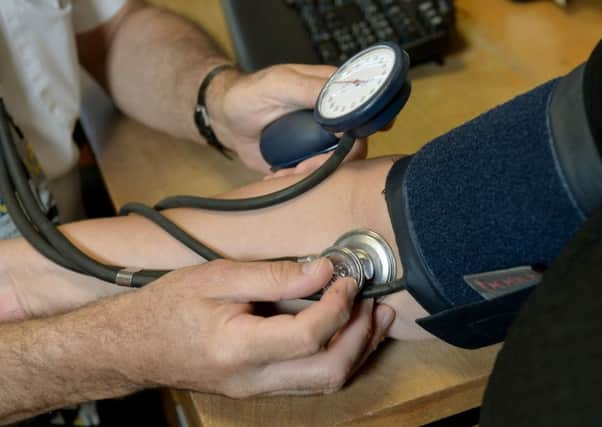More practices '˜need locum help'


A new survey of GPs, nurses and healthcare commissioners found major problems with staffing, with a rise in the number of practices needing to hire temporary doctors.
It comes after warnings of a crisis in general practice, with problems recruiting trainees and GPs saying they are stretched to their limits.
Advertisement
Hide AdAdvertisement
Hide AdEarlier this week, the British Medical Association (BMA) warned that pressures on GPs in England and Wales were so great that they feel they are failing patients and potentially providing unsafe care.
In the new report, from the research arm of the publishers of Pulse magazine and Nursing in Practice, GP practices across the UK said they were becoming increasingly dependent on locum GPs and agency nurses.
Of the practice managers and GP partners included in the survey, 47 per cent said their practice had increased their use of locum GPs over the past 12 months, while 16 per cent had increased the use of agency nurses.
A total of 1,158 people took part in the survey for the report, of whom 48 per cent were GPs and 31 per cent were nurses.
Advertisement
Hide AdAdvertisement
Hide AdOthers worked as commissioners, practice managers, health visitors and midwives .
Almost 80 per cent of all those surveyed said the quality of care has worsened over the last 18 months.
Furthermore, those working in GP practices also had reservations about the quality of care provided in their local hospital, with less than half saying they would be happy for their family members to be treated there.
Of those who said care had worsened, almost all believed a shortage of clinical staff was a contributing factor. Some 78 per cent also pointed to insufficient healthcare budgets while 82 per cent said not being able to spend sufficient time with each patient was linked to worsened care.
Advertisement
Hide AdAdvertisement
Hide AdA typical GP appointment usually lasts 10 minutes, the report found. However GPs surveyed as part of the research said 15-minute appointments were actually needed.
The major NHS reforms undertaken by former health secretary Andrew Lansley also received little support.
Around 40 per cent of those surveyed saying they had worsened care. And despite a pledge that new clinical commissioning groups (CCGs) would increase the involvement of GPs, few GPs felt they were able to influence CCG policy.
When it comes to what the NHS spends money on, 75 per cent of respondents called for a public debate on the treatments that should, and should not, be provided on the NHS.
Advertisement
Hide AdAdvertisement
Hide AdMore than half of GPs revealed that people who drink too much and end up in A&E should be charged. A third believed the NHS should stop funding IVF treatment.
Previous reports found that CCGs – which handle about 60 per cent of the NHS budget – are already rationing some services including IVF, bariatric surgery and vasectomies.
An NHS England spokeswoman said: “Latest figures show there are over 5,000 more full-time equivalent GPs than 10 years ago.
“GPs are key to transforming the way health services will be delivered in the future.
“This is why we’re working hard across the health service to help GPs through the current pressures.”